When you were a kid dreaming of growing up, no one told you that adulthood meant spending your hard-earned money on new kitchen sponges and replacement air filters. Now you know the truth, and you also know that spending a little money is worth the peace of mind that comes with knowing your space is clean, safe and well-stocked. So, go ahead and buy the sponges and air filters in bulk. They’re just a few of the things that need to be regularly replaced around your home.
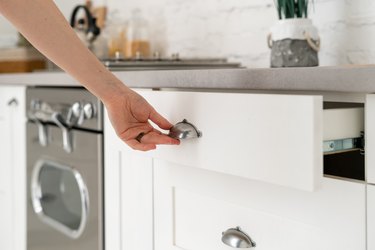
Video of the Day
1. Toothbrushes
If you only open a new toothbrush when your dentist gives you a free one after your annual checkup, it’s past time to accelerate the replacement cycle. The American Dental Association recommends replacing a toothbrush every three to four months or even more frequently if the bristles show signs of wear. Toss your brush after a bout of viral or bacterial illness too.
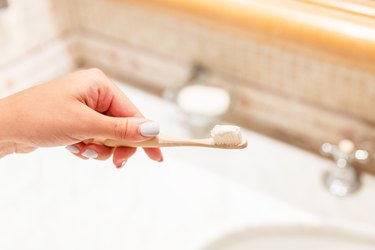
2. Bed Pillows
For people who have a hard time sleeping, finding the perfect pillow can be a years-long quest. Once you find one that’s not too soft nor too firm nor too thin nor too stuffed, you may want to keep it forever … until you think about all the body oils, skin cells and dust mites that accumulate in pillows over time. Buy new ones at least every two years.

3. Shower Curtain Liners
The shower curtain liner takes the brunt of your showering routine. It gets coated with product residue, and mildew develops quickly in the damp, poorly ventilated shower area. Take it down as soon as you spot any cloudiness or signs of mold. Either wash the plastic shower curtain liner or buy a cheap replacement.
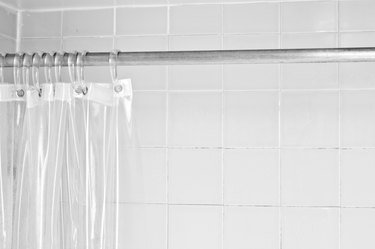
4. Pet Bowls
You want nothing but the best for your furry friend, right? Pet bowls can get gross quickly, so it’s certainly a good idea to wash them with hot soapy water at least every few days. Bowls made of stainless steel or ceramic may last for years without issue, but plastic bowls should be replaced more frequently. Toss them as soon as you notice any scratches or dings, which could harbor bacteria that gets into your pet’s food.

5. Cutting Boards
There’s not a specific timeline for how often to replace cutting boards. If your idea of cooking is putting together the occasional cheese board, your little-used cutting boards will probably last for years, but daily cooks may need to upgrade their boards at least once a year. Every time a knife cut creates a groove in the board, you’re creating a new place for bacteria to flourish.

6. Air Filters
When you can’t see your air filters, it’s easy to forget how dirty they’re getting. Central HVAC systems, window air conditioners, humidifiers/dehumidifiers and even certain fans have air filters that get clogged with dust, mold spores and other particulates. Keeping them clean is critical for indoor air quality. Check filters every 30 days and either clean reusable filters or replace disposable filters as soon as you notice buildup developing.
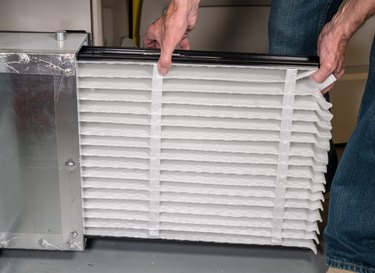
7. Fire Extinguishers
You can probably use sunscreen or tea bags that expired last month without harm, but you can’t take risks with fire safety. While a fire extinguisher doesn’t technically expire, it will cease to be functional at some point. Check the gauge monthly. If the needle falls outside of the green area, the extinguisher needs to be replaced or serviced.
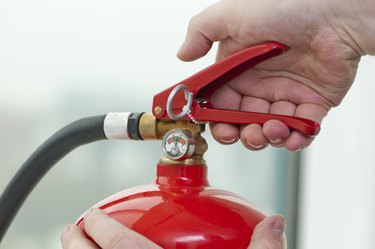
8. Medications
It’s impossible to know whether you’ll suffer any adverse effects from taking expired over-the-counter drugs. You may be perfectly fine taking ibuprofen that expired last month, but swallowing pills that are five years out of date definitely isn’t advisable. Play it safe by replacing medications whenever they expire.

9. Water Filters
There’s little point in filtering your water if the filter is clogged with lead and sediment. In fact, your unfiltered drinking water may be even more contaminated after traveling through a dirty filter. Change the filters in your refrigerator and water filter pitcher at least once every four months or more frequently depending on how much use they get.

10. Sponges
Of all the things in your home that you’re probably not replacing often enough, kitchen sponges might be the grossest. We use them to clean dishes that have held raw meat and utensils that have been in people’s mouths and then leave them sitting damp by the edge of the sink all day. Minimize the spread of bacteria by replacing sponges at least once a month but preferably much more frequently. If you wash dishes by hand every day, you may want to use a new sponge every week.



